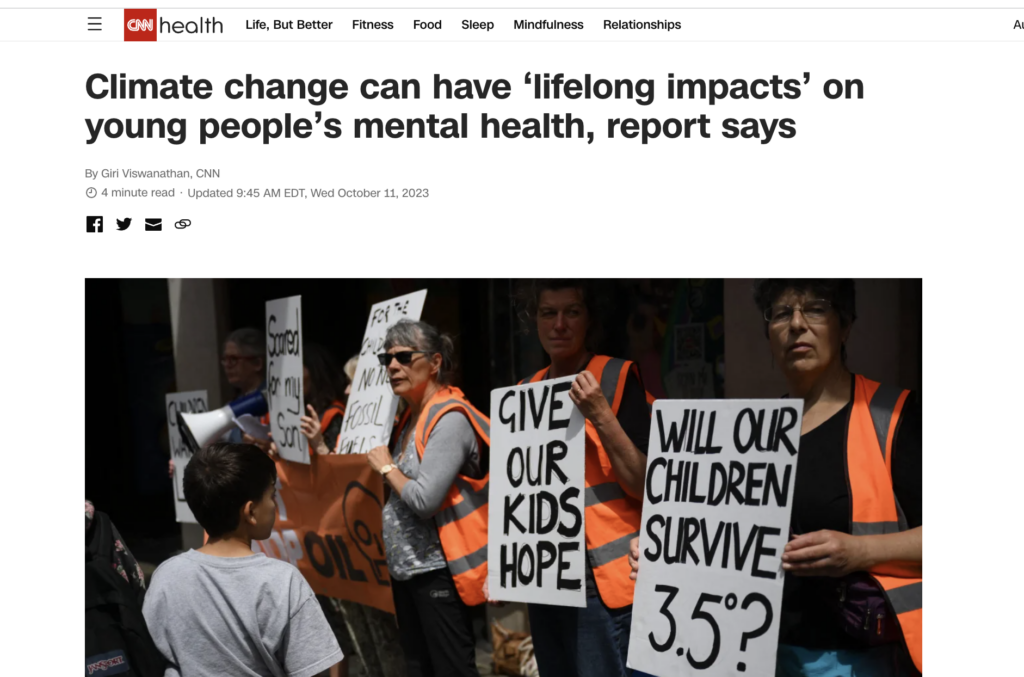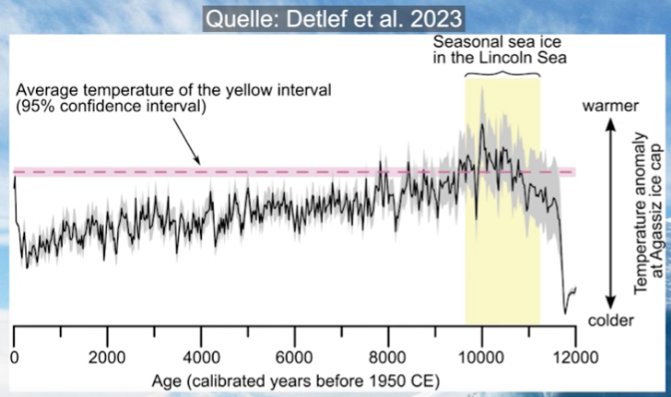https://www.cnn.com/2023/10/11/health/climate-change-youth-mental-health/index.html
Written in collaboration with the climate advocacy organization ecoAmerica, the report documents how environmental events linked to climate change – including weather disasters, extreme heat and poor air quality – can trigger or exacerbate mental health issues for kids and teens.
Natural disasters can lead to post-traumatic stress disorder in these groups, the report says. Longer-term problems like heat, drought and poor air quality can increase the risks of anxiety, depression, bipolar disorder, aggression, cognitive impairment and more.
“The report documents psychological harms that are happening right now to the children and youth in our country,” Dr. Dennis P. Stolle, the association’s senior director of applied psychology who reviewed the report, wrote in an email to CNN. “These are not issues that we can wait and resolve later. As a society, we must act now.”
The report, released Wednesday, serves as a follow-up to a 2021 study conducted by the American Psychological Association and ecoAmerica. It’s the latest in a series of studies by the two organizations dating to 2014. The studies don’t involve new experiments; rather, they summarize existing research about climate change, mental health and youth development.
Problems begin before birth
According to Dr. Sue Clayton, a professor of psychology at the College of Wooster and the report’s lead author, climate change-related weather events leave kids more vulnerable to mental health consequences because young people might not have the coping strategies that adults do.
If a parent is stressed by hardship associated with an environmental event, like extreme heat or wildfires, it may influence their children’s mental health, as well.
“If your parent is under stress because of worries or these fears, that can affect a child and their mental health,” Clayton said. “Experiencing trauma at an early age can have lifelong impacts on emotional health and well-being.”
Those mental health consequences begin even before a child is born, the report says. Prenatal exposure to weather disasters, high temperatures, air pollution and maternal anxiety can raise a child’s risk of a variety of behavioral and developmental issues, including anxiety, depression, ADHD, developmental delays, low self-control and psychiatric disorders.
The consequences can affect the development of the nervous system and are often irreversible, Clayton said.
For infants and young children, weather events linked to climate change – and exposure to news reports about them – could lead to anxiety, sleep troubles, PTSD, disrupted cognitive development and major depressive disorder.
#





